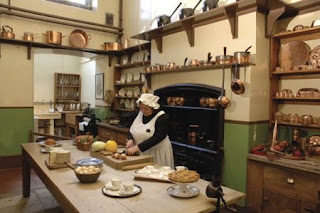There is a
rule in writing cozy or traditional mysteries:
don't kill animals. If you browse in a bricks-and-mortar bookstore, you will quickly see that
most cozies have a kitten or a puppy on the cover, and sometimes more than one.
It's kind
of ironic, since cozies are murder mysteries, which means that at least one human
person dies in each book, and sometimes more people as the killer attempts to
cover his or her trail. Even children are fair game, now and then. The protagonist
is often a target of violence, although we know by definition that s/he will
survive, since most cozies are issued as series (I can't offhand recall an
example where the series was not renewed by the publisher and the author, in a
fit of pique, massacred the protagonist).
But I'd
always regarded this rule as sort of an urban legend particular to publishing and other media.
Not so, I discovered recently while reading the newspaper. In New York City, that paradigm of
the Big City, power was cut on two subway lines to Brooklyn because…there were
two kittens on the tracks. Yes, part of the
New York transit system was brought to its knees by a pair of curious felines.
 |
| Yes, of course they're adorable |
The
Associated Press provided many useful details.
The kittens were black (one) or white with gray stripes (the other). No age or gender given. The woman who owned them reported to transit
officials that they had escaped to the subway, and it took seven hours to
rescue them (during which they were reported to have been seen "running
dangerously close to the high-voltage third rail."
They were
lured to safety with cat food provided by the owner, then removed from the
subway tunnel in crates. The transit
authority provided passenger shuttles for those inconvenienced. No estimate of
the costs of providing the service was given.
As a good
cozy writer, I should have remembered that I was a party to a similar event in
the Bay Area in California, a couple of decades ago: there was a dog in the tunnel between two
stops on the Richmond line. It took an
hour or two to persuade the dog to make an exit—apparently he thought it was a
big game.
But it's
comforting to know that there is still a sense of kindness in the world. Transit officials knew there would be a financial
cost to them (ultimately passed on to the subway riders, no doubt) to save
those two kittens, but isn't that far better than having them say, "forget
it, those little buggers aren't worth that much—run 'em over"?
It would be
nice if the AP had added a final note:
was there applause and cheering when it was announced that the trails
were once again kitten-free?
Addendum: in my books, the closest I've come to
attacking an animal was a woman who was aiming a two-by-four at a goat, but she
stopped before she could make that swing. And all pets in the books, including
the goats, are rescue animals.
Coming very, very soon!
Populated by: one cat (Lolly), one dog (Max), and two goats (Dorcas and Isabel). And a bunch of humans. Yes, there is a bunny in the story--briefly.






































